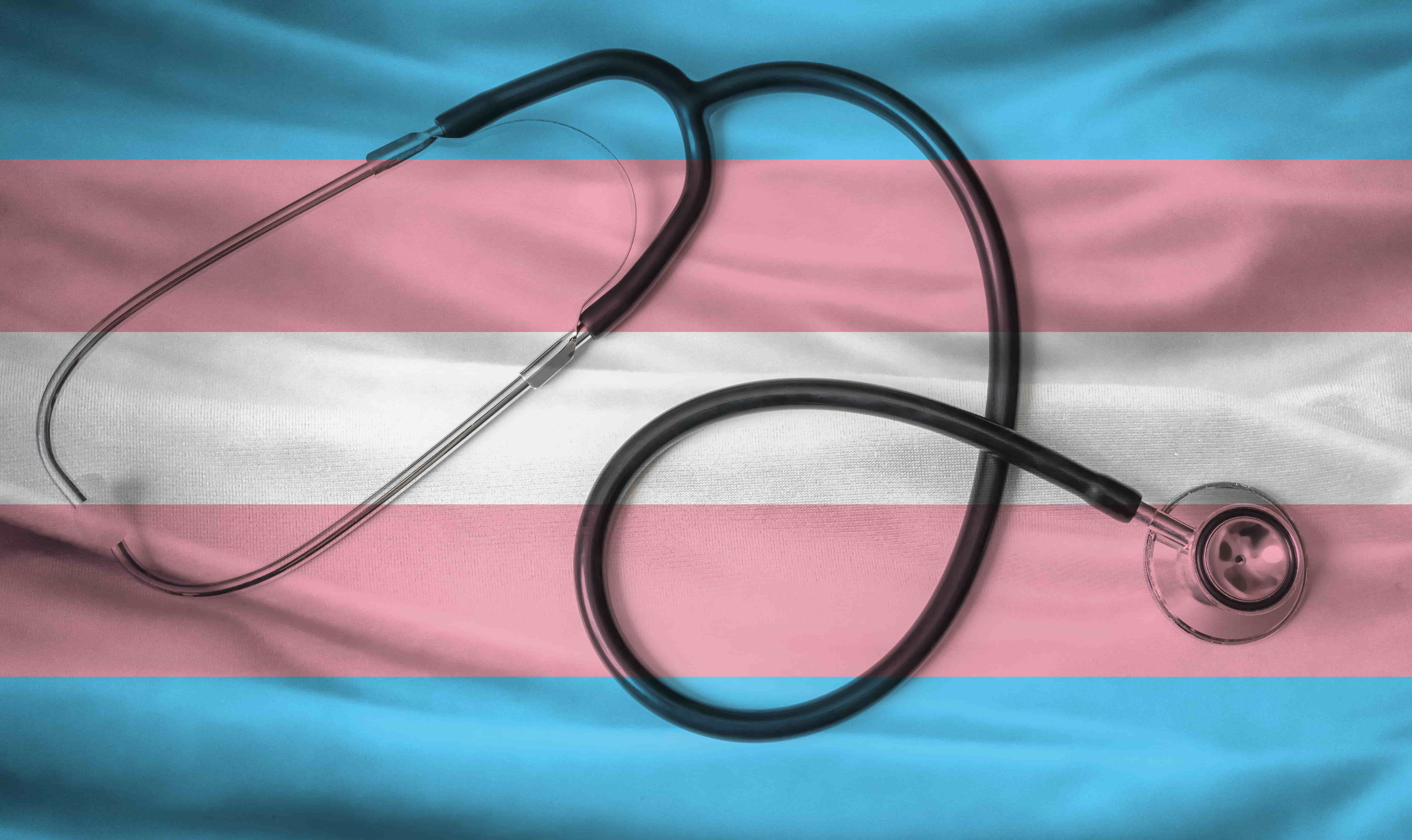Texas Law Banning Transgender Health Care to Take Effect
Despite ruling in favor of law's opponents, a judge's order stopping the state from enforcing the ban has been halted on appeal.

A Texas law barring transgender youth from accessing puberty blockers and hormones will go into effect next week after the state attorney general’s office filed an appeal of a judge’s order blocking state authorities from enforcing the law.
In a decision issued Friday, Travis County Judge Maria Cantú Hexsel issued a temporary injunction suspending the law, which was signed by Gov. Greg Abbott earlier this year, from taking effect on Sept. 1, reports the Texas Tribune.
The law was challenged by a group of plaintiffs, including five families with transgender children, three doctors specializing in transgender care, a national LGBTQ advocacy organization, and an organization for LGBTQ health professionals. The plaintiffs argued that the ban on gender-affirming care discriminates against transgender youth, infringes on parents’ right to make medical decisions they believe are in their children’s best interests, and violates doctors’ freedom to practice medicine.
In her ruling, Cantú Hexsel agreed with the plaintiffs, finding that the plaintiffs were likely to succeed in proving the law “interferes with Texas families’ private decisions and strips Texas parents … of the right to seek, direct, and provide medical care for their children.”
“The evidence before the Court does not support the conclusion the Act protects the health or wellbeing of minors,” Cantú Hexsel wrote. “Instead, the evidence demonstrates that the Act threatens the health and wellbeing of adolescents with gender dysphoria.”
The judge criticized the law, rejecting the state’s argument that it was designed to protect minors from pursuing potentially irreversible transition-related treatments that they may later grow to regret. She noted that the law only bars transgender-identifying minors from accessing hormone therapy and puberty blockers, and not children with other medical conditions requiring hormonal interventions.
“It prohibits the treatments only when used to treat an adolescent for gender dysphoria, even though the risks of the treatment are similar, if not the same, regardless of the condition for which they are prescribed,” Cantú Hexsel wrote. “The Act was passed because of, and not in spite of, its impact on transgender adolescents, depriving them of necessary, safe and effective medical treatment.”
Finding that the plaintiff families would “suffer probably, imminent, and irreparable injury” if the law were allowed to go into effect, Cantú Hexsel issued a temporary injunction seeking to block the state attorney general’s office, the Texas Medical Board, and the Texas Health and Human Services Commission from enforcing the law’s provisions while the lawsuit is litigated in the courts. The law recommends loss of licensure and potential jail time for doctors who prescribe such treatments to minors.
A trial to determine the law’s constitutionality is set to begin on May 6, 2024.
Initially, LGBTQ advocates celebrated the injunction as a “critical victory” for transgender youth and their families who feel under attack from state authorities who disagree with parents’ decisions on how to raise their children.
Texas child welfare agencies have recently pursued “child abuse” investigations into parents of transgender-identifying youth — including delving into those youths’ private medical information — who are believed to have allowed them to receive gender-affirming treatments, complying with an order issued by Abbott last year. Last year, a Texas judge blocked investigations into families who are members of the national LGBTQ advocacy group PFLAG, but other investigations have been pursued by state agencies wary of defying the governor’s order.
“As Texans, we believe that each one of us should have the freedom to be ourselves and have access to best-practice medical care that we need for ourselves and our children without facing cruel discrimination or bullying designed as policy,” Brian Klosteboer, an attorney with the American Civil Liberties Union of Texas, said in a statement to Austin-based NBC affiliate KXAN. “Trans Texans shouldn’t have to go to court to defend their basic rights, and we will keep advocating for our clients every step of the way.”
An hour after Cantú Hexsel issued her opinion, the attorney general’s office filed an appeal with the Texas Supreme Court.
The attorney general’s office claims its appeal nullifies the judge’s injunction — which was supposed to remain in effect until the case was resolved or the lawsuit is dismissed by the court — leaving a great deal of uncertainty around the law’s status. However, given the eagerness of Texas officials to enforce the law, it is more than likely that, barring additional intervention, authorities will begin enforcing the law and prosecuting violators beginning on Sept. 1.
In a press release, the attorney general’s office said its appeal was designed to protect children from procedures it claims are “experimental” and not grounded in science.
“These unproven medical interventions are emphatically pushed by some activists in the medical and psychiatric professions despite the lack of evidence demonstrating medical benefit, and even while growing evidence indicates harmful effects on children’s mental and physical welfare,” the office said in a statement.
However, most mainstream medical and mental health organizations including the American Academy of Pediatrics, the American Medical Association, the American Psychological Association, and the Pediatric Endocrine Society, have recognized hormonal interventions as the best-practice medical care to treat minors suffering from gender dysphoria.
Similar laws restricting gender-affirming care have passed in at least 21 other states. In June, a federal judge found a nearly identical ban in Arkansas to be unconstitutional. Several other state’s bans have been blocked by federal judges, only to subsequently be overturned by conservative appeals courts, including the 6th Circuit and 11th Circuit. As a result of those rulings, laws in Tennessee, Kentucky, and Alabama have been allowed to take effect, with injunctions blocking bans in Georgia and Florida likely to be allowed to take effect as well.
Support Metro Weekly’s Journalism
These are challenging times for news organizations. And yet it’s crucial we stay active and provide vital resources and information to both our local readers and the world. So won’t you please take a moment and consider supporting Metro Weekly with a membership? For as little as $5 a month, you can help ensure Metro Weekly magazine and MetroWeekly.com remain free, viable resources as we provide the best, most diverse, culturally-resonant LGBTQ coverage in both the D.C. region and around the world. Memberships come with exclusive perks and discounts, your own personal digital delivery of each week’s magazine (and an archive), access to our Member's Lounge when it launches this fall, and exclusive members-only items like Metro Weekly Membership Mugs and Tote Bags! Check out all our membership levels here and please join us today!































You must be logged in to post a comment.